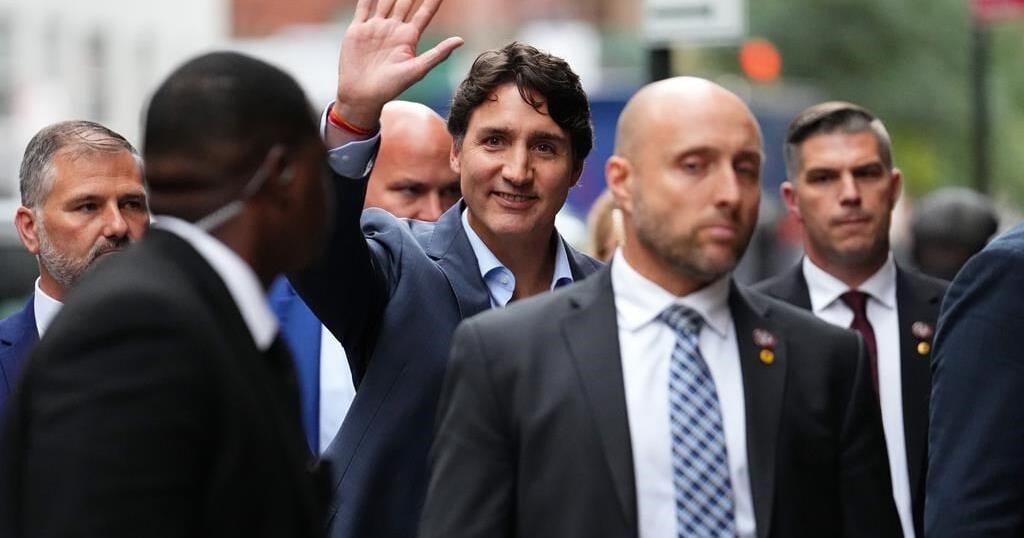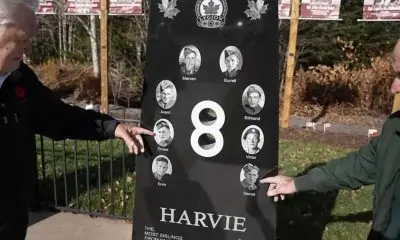NEW YORK – Justin Trudeau‘s interview on “The Late Show with Stephen Colbert” began with the expected jokes about bacon and Canadians saying sorry a lot, but the prime minister acknowledged it’s “a really tough time” in the country when the host asked about an expected confidence vote in Parliament this week.
“People are hurting. People are having trouble paying for groceries, paying for rent, filling up the tank,” Trudeau said during the CBS program Monday in New York, where he has been meeting with world leaders attending the United Nations General Assembly.
Trudeau admitted there’s frustration. He said the housing crisis “is a little sharper” in Canada than it is in the U.S. And even though he said Canada’s economy is performing better on a “macro” level than its southern neighbour’s, people don’t feel it when they’re at the checkout.
Still, he said it’s important to invest in people by moving forward with $10 a day child care, dental care and pharmacare so that diabetes medication and prescription contraception will be free.
Trudeau will return to Ottawa on Wednesday in time for a vote on an expected non-confidence motion the Conservatives have threatened to bring in against his minority government.
“People are sometimes looking at change but the reality is I deeply believe in continuing to fight climate change and continuing to invest in people, continuing to be there to support people. And I’m going to keep fighting,” he told Colbert.
At one point Colbert said flirtations with fascism and xenophobia were rising across the globe, and he said that even in Canada, Trudeau’s opponent has been called “Canada’s Trump.” He wondered why such ideologies were getting traction in a country “as polite as Canada.”
Trudeau didn’t bite on the Trump remark, but responded that Canada isn’t perfect. He said universal health care took decades to fight for, and things like leading the world with action on climate change are worth fighting for, too.
“There’s a big argument right now about whether dental care really exists. We’ve delivered it to 700,000 people across the country and my opponent is gaslighting us and saying, oh, dental care doesn’t even exist yet,” he said.
Conservative health critic Stephen Ellis said in a statement earlier this month that the government had botched the dental program, saying the vast majority of Canadians don’t qualify, and those who do may still have to pay out of pocket.
Colbert also asked Trudeau about issues Canada and the U.S. fight over, such as the softwood lumber duty that the U.S. Department of Commerce nearly doubled in August. Trudeau replied that Americans are paying too much for lumber because of the tariffs.
“We come over the border for cheaper drugs. You guys happy with that?” Colbert asked.
“We’re happy to try and help you out but it would be really easier if you get universal health care,” Trudeau answered, to loud applause from the audience.
This report by The Canadian Press was first published Sept. 24, 2024.
— By Rob Drinkwater in Edmonton
Note to readers: This is a corrected story. A previous version misstated the name of “The Late Show with Stephen Colbert.”

























